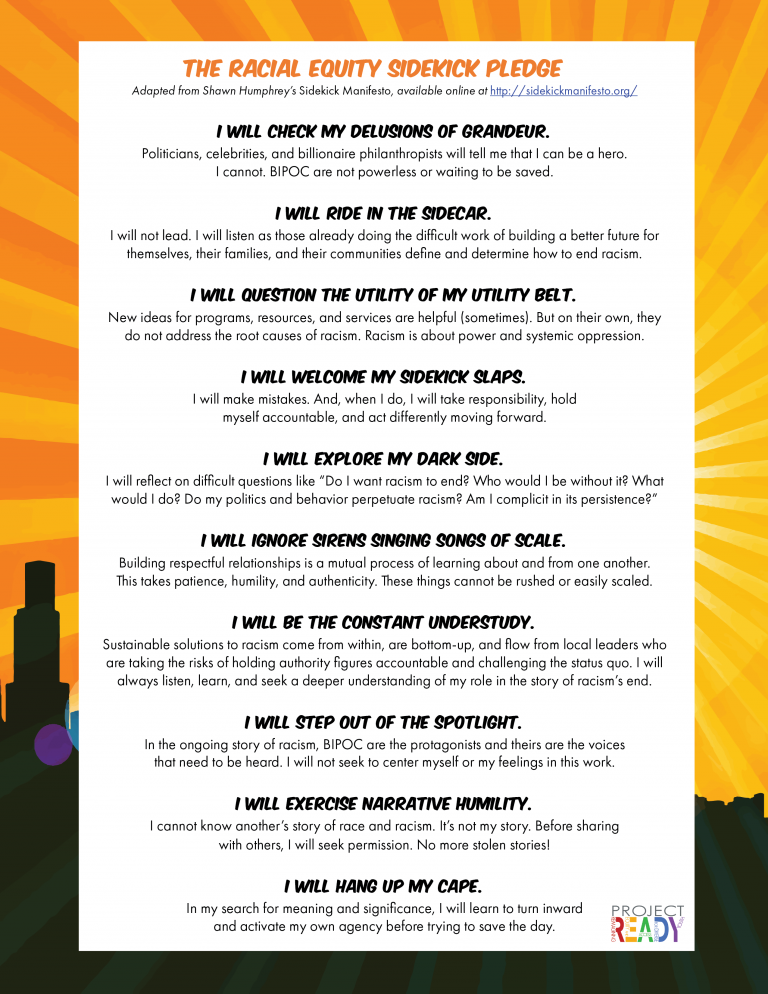Racial Justice Resources for Houston Teachers and Families
|
INTRODUCTION: Students Need Libraries recognizes the need to support Houston school librarians and their teachers, students and school communities with resources to encourage increased racial justice in our lives. SNL has been working for Equity of Access as long as we have been active, but recent events raise our compulsion to curate these pages. We hope that librarians will refer here for broad understanding of the issues and their impacts, and to share these resources with their school communities. We also hope that stakeholder allies of school libraries, and even readers who don’t yet understand how to be stakeholder allies, will also find these pages useful because they will stay easy to find even after the dust begins to settle and the access to these resources begins to hide as the media turn to other topics.
This is just the first page of a growing curation that will include curricular resources and materials for families to use for discussion at home. THANK YOU Many thanks to Velda Hunter (Librarian at Yates High School) and James Martin (long time friend and knowledgeable book person) for their help in catching issues of incorrectness or insensitivity. I have grown in understanding of the depth of these issues as I worked on this curation. Dorcas Hand, Webmistress Elliott, Jane. "Commitment to Combat Racism." https://janeelliott.com/, "Her Mission: One Race. Jane Elliott, internationally known teacher, lecturer, diversity trainer, and recipient of the National Mental Health Association Award for Excellence in Education, exposes prejudice and bigotry for what it is, an irrational class system based upon purely arbitrary factors. And if you think this does not apply to you. . . you are in for a rude awakening." "The task of combating prejudice and racism requires education, introspection, and commitment." This questionnaire is thought-provoking as we all work to build a more inclusive and accepting world.
This powerful quote brings context to the conversation about how to understand students in our classrooms and libraries, as well as the wider world.
“Not just that they lived through trauma, but that the angst and the anguish was decontextualized. For my black body to be born into a society by which the white body is the standard is, in and of itself, traumatizing. If my mom is born, as a black woman, into a society that predicates her body as deviant, the amount of cortisol that is in her nervous system when I’m being born is teaching my nervous system something. Trauma decontextualized in a person looks like personality. Trauma decontextualized in a family looks like family traits. Trauma in a people looks like culture.” Menaken, Resma. Quoted in blog post “Notice the Rage. Notice the Silence.” “Daily Good: News that Inspires” in On Being, 6 Jun 2020. Interviewed by Krista Tippett. "5 Tips For Being An Ally." YouTube, uploaded by Chescaleigh!, 22 Nov. 2014.
The video below was created long before the June 18, 2020 Supreme Court decision on the definition of "sex". The narrator’s reason for mentioning workplace discrimination is to illustrate a concept and is not the gist of the video, but we note that SNL realizes that the example is dated. This video remains the best short illustration of the role of allies we have found. |
ALA. “ALA adopts new Code of Ethics principle on racial and social justice.” ALA press release, 28 July 2021.
HOUSTON
Sewing, Joy. “'Red Book' Offers Window into Past of Houston's Black Middle Class More Than 100 Years Ago.” Houston Chronicle, 20 Aug 2021. “The Red Book: A Compendium of Social, Professional, Religious, Educational and Industrial Interests of Houston’s Colored Population,” which offers a rare look at the city’s Black community during 1915, just 50 years after June 19, 1865, or Juneteenth, when former enslaved African Americans in Texas learned of their freedom.” Turner, Cory and Sequoia Carillo. “Coronavirus, Racism And Kindness: How NYC Middle-Schoolers Built A Winning Podcast.” NPR All Things Considered, 17 June 2020. “First, the end: ‘Please be kind to one another. That's all for today.’”
FOR LIBRARIANS
American Library Association. "#Libraries Respond: Black Lives Matter." ALA.org, June 2020. ALA has compiled useful resources for librarians to understand and work towards improved racial justice in their work and communities. More resources for Librarians on the Curriculum page. Project Ready offers "a series of free, online professional development modules for school and public youth services librarians, library administrators, and others interested in improving their knowledge about race and racism, racial equity, and culturally sustaining pedagogy. The primary focus of the Project READY curriculum is on improving relationships with, services to, and resources for youth of color and Native youth." The Sidekick Pledge above is their work.
EDUCATIONAL JUSTICE
Warren, Mark R. & David Goodman. Lift Us Up Don’t Push Us Out Voices from the Front Lines of the Educational Justice Movement. Beacon, 2018. “Parents, young people, community organizers, and educators describe how they are fighting systemic racism in schools by building a new intersectional educational justice movement.” 65 Resources for Racial and Health Equity
from teach.com/resources/racial-equity-resources/ It’s important for individuals, groups and policymakers to understand how to approach racial equity and promote more racial equality in communities, schools, healthcare systems and other areas. These articles, toolkits, research pieces and other materials provide information about issues facing Black Americans, indigenous communities and other minority groups, and offer strategies for taking action to advance racial equity across society—particularly in healthcare. Table of Contents
|

